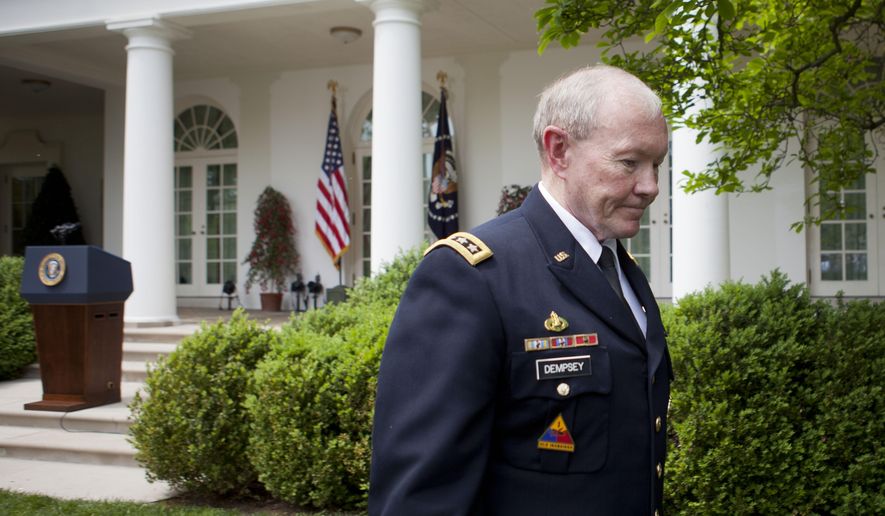Gen. Martin Dempsey, chairman of the Joint Chiefs of Staff, told PBS that the Pentagon had no contingency plan for the fall of Mosul in the summer of 2014.
“For all the contingency planning that you routinely do here at the Pentagon, were there plans for how to react to the fall of Mosul to ISIS?” PBS’ Martin Smith asked the general.
“Well, no, there were not,” Gen. Dempsey replied, PBS reported Tuesday.
The Obama administration was criticized after the fall of Mosul in June of 2014 for referring to the nascent Islamic State group as a “JV team.”
“The analogy we use around here sometimes, and I think is accurate, is if a JV team puts on Lakers uniforms that doesn’t make them Kobe Bryant,” President Obama told The New Yorker after being asked about Fallujah’s seizure in Iraq and the rise of Islamic rebels in Syria.
“I think there is a distinction between the capacity and reach of a bin Laden and a network that is actively planning major terrorist plots against the homeland versus jihadists who are engaged in various local power struggles and disputes, often sectarian,” Mr. Obama told The New Yorker June 13, 2014.
After admitting that the Pentagon had not anticipated the fall of Mosul, Gen. Dempsey told PBS that officials underestimated the group’s ability to form a lasting coalition with ideological allies.
“Look, there were several things that surprised us about ISIL. The degree to which they were able to form their own coalition, both inside of Syria and inside of northwestern Iraq; the military capability that they exhibited; the collapse of the Iraqi Security Forces. … Yeah, in those initial days, there were a few surprises,” the general told PBS for its “Obama at War” special.
The Obama administration now finds itself fending off criticism after the fall of the Iraqi city of Ramadi on May 17. Iraqi security forces fled the city after a series of coordinated attacks by the Islamic State group. U.S.-supplied weapons were abandoned during the Iraqi retreat.
Defense Secretary Ashton Carter said the Sunni radical terror group’s victory in Ramadi was due to the Iraqi security forces, which showed “no will to fight.”
Iran-backed Shiite militias plan on assisting Iraqi forces in their efforts to retake the city.
• Douglas Ernst can be reached at dernst@washingtontimes.com.




Please read our comment policy before commenting.